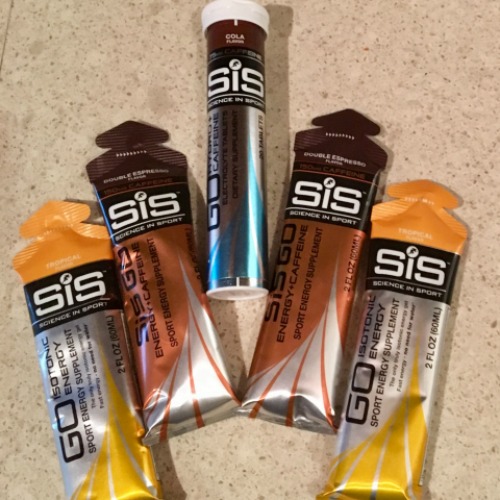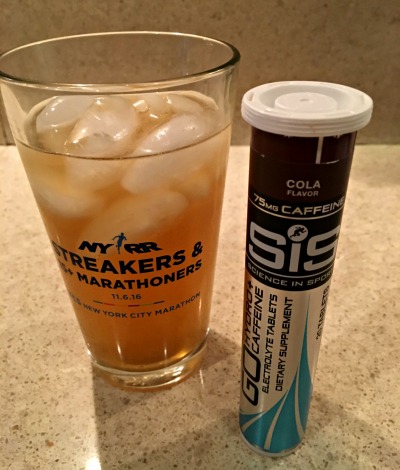 I found Science in Sport (SiS) gel at the Rock n’ Roll Half Marathon. It’s an isotonic gel that’s intended to be taken without water to “avoid that full feeling.” It’s easily digestible and provides quick carbohydrates for energy. It’s used by some of the top cycling teams across the world.
I found Science in Sport (SiS) gel at the Rock n’ Roll Half Marathon. It’s an isotonic gel that’s intended to be taken without water to “avoid that full feeling.” It’s easily digestible and provides quick carbohydrates for energy. It’s used by some of the top cycling teams across the world.
Science in Sport was founded in London in 1992. They’ve developed and tested products for energy, hydration and recovery across a variety of sports. They say everything they do is “fueled by science” and rigorous testing.
For running, they say, “no matter what distance you decide to tackle, don’t let all your hard work during training go to waste with a poor nutritional strategy!” Their GO Isotonic Gel is available for an energy boost while you work out. They also have a hydration product and a recovery product. For more information, take a look at their Running Nutrition Guide.

I signed up for their newsletter and got a smoking deal on gels. I noticed that they also have hydration tablets and they have a Cola flavor. I’ve been looking for one since Nuun stopped making Kona Cola last year! I ordered two kinds of gel – Tropical and Double Espresso (with caffeine).
Each SiS gel is 90 calories and the caffeinated gels contain 150 mg of caffeine. The gels are gluten free and vegan. I like them because they are a nice smooth texture and you don’t need water. I take them between water stops. They taste pretty good, too.

The Go Hydro Tablets are effervescent when added to water. They come in three flavors: Berry, Lemon and Cola. I got Cola and it’s really good. It has 75 mg of caffeine and electrolytes. It’s recommended for drinking after exercise or while you’re biking during hot weather.
I’m going to send one lucky reader a tube of Go Hydro tabs in Cola and 4 GO Isotonic Gels. To enter to win, please use the Rafflecopter below. Winners must be US residents, 18 years of age or older and the offer is void where prohibited. The giveaway runs through October 4. Winners will be selected and notified on October 5.
Don’t want to wait? You can find Science in Sport online and at The Feed. You can follow Science in Sport on Twitter, Facebook and Instagram.
Please note: I’m sharing product I purchased. This post is not sponsored by or affiliated with Science in Sport. This post contains an affiliate link for The Feed. If you use this link, I’ll receive a small commission.

